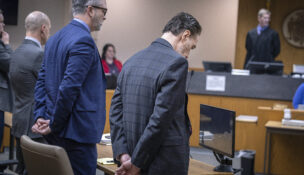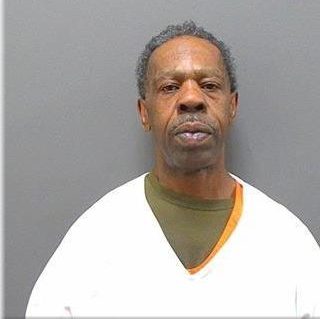Lawyers may Google potential jurors, ABA says
By: DOLAN MEDIA NEWSWIRES//May 12, 2014//
By Elizabeth Ahlin
Dolan Media Newswires
 Voir dire is a desperate rush to learn as much as possible about potential jurors before jury selection is final.
Voir dire is a desperate rush to learn as much as possible about potential jurors before jury selection is final.
Lawyers can examine the clothing and demeanor of jurors in trying to determine whether they will be biased against a client. And now, the American Bar Association has clarified, lawyers may Google jurors, look them up on Facebook and examine their Internet presence.
But there are limits.
Lawyers can review the Internet presence of a juror or potential juror, the group wrote in a recent formal opinion, but direct communication with jurors online is strictly forbidden. That means a lawyer can look at a publicly available profile on Facebook, for example, but could not submit a friend request to the juror to try to see what is hidden.
The rules contained within the opinion are, in many ways, common sense. But in a world of online social networking and electronic media presences, concerns arise. William Wernz, who wrote the treatise Minnesota Legal Ethics, said he remembers when email became a common form of communication and people worried about sending messages to clients.
“There were some opinions for a while that you really don’t want to communicate by email, because that wasn’t very safe,” said Wernz. “It’s just nonsense, so that kind of got washed out after a while.”
The rules contained in the formal opinion on viewing jurors online closely mirror existing rules forbidding lawyer communication with jurors outside of official proceedings. They are rules some lawyers instinctively adhere to already.
Jean Brandl, a defense attorney, says she welcomes any tool to help a lawyer know more about jurors.
“Generally, you go into a trial and you have no idea who your (potential) jurors are until one minute before they walk in the door, if then,” Brandl said. “Then we have to go on this crazy fishing expedition.”
Brandl said lawyers have been known to look at jurors to estimate the cost of their clothing, to see if they have insignias on their T-shirts, and, most importantly, what they are reading.
“We just crane our necks to see what book they’re bringing in,” Brandl said.
Brandl has, in the past, had a law clerk look up jurors online. Most of the time, however, there just isn’t time.
Online access could be a way of evening the playing field, said Deborah Ellis, also a defense attorney. Prosecutors often get greater access to information about potential jurors, including pending criminal cases or known associations, Ellis said.
“From a defense standpoint, we are pretty much given their biographical information: their age, whether they’re married, their occupation and spouse’s occupation and if they have any children,” Ellis said. Being able to look up jurors online would be helpful, but Ellis echoed Brandl in the main restriction on such attempts. The issue isn’t ethics.
“There’s not enough time,” Ellis said.
Ellis said she has never searched online for information on jurors, but she can see why an attorney would. Even after a jury is seated, it could be helpful to find out if a juror is posting political messages, for example.
“The more information you have, the better off you are,” Ellis said.
The new formal opinion, which is not binding, offers direction to state bar associations. It clarified that if a juror finds out that an attorney has looked at social media profile through an automated notification feature of the program, that is not considered communication by the attorney. The social media provider, not the lawyer, communicated with the juror.
While the opinion offers some guidance, it is not much of a departure from existing ethical rules, said Wernz.
“The vast majority of these opinions come up saying pretty much what’s true of the world without modern communications,” Wernz said. “That is, if I wanted to find out something about jurors 40 years ago, so I sent somebody to the library or wherever you would go, short of knocking on their door or peeking in their window, I don’t think anybody would have found that controversial.”
Legal News
- FBI launches criminal investigation into Key Bridge collapse
- Man charged in slaying after woman’s leg found at Milwaukee-area park
- Minnesota man guilty in fatal stabbing of teen on Wisconsin river, jury finds
- Wisconsin teen sentenced in bonfire explosion that burned at least 17
- Wisconsin man who broke into home, ate victim’s chicken, slept in victim’s bed, receives prison and jail sentences
- Judge refuses to dismiss Hunter Biden’s gun case
- House passes reauthorization of key US surveillance program after days of upheaval over changes
- Milwaukee Police officer traveling to Georgia training retires before facing discipline
- Evers to ask legislature to approve largest increase in state support for UW System in two decades
- 7th Circuit Court of Appeals proposes new rules
- Federal agencies allege toxic work environment for women in new report
- Wisconsin man sentenced for sex trafficking a woman and a minor online
WLJ People
- Power 30 Personal Injury Attorneys – Russell Nicolet
- Power 30 Personal Injury Attorneys – Benjamin Nicolet
- Power 30 Personal Injury Attorneys – Dustin T. Woehl
- Power 30 Personal Injury Attorneys – Katherine Metzger
- Power 30 Personal Injury Attorneys – Joseph Ryan
- Power 30 Personal Injury Attorneys – James M. Ryan
- Power 30 Personal Injury Attorneys – Dana Wachs
- Power 30 Personal Injury Attorneys – Mark L. Thomsen
- Power 30 Personal Injury Attorneys – Matthew Lein
- Power 30 Personal Injury Attorneys – Jeffrey A. Pitman
- Power 30 Personal Injury Attorneys – William Pemberton
- Power 30 Personal Injury Attorneys – Howard S. Sicula











